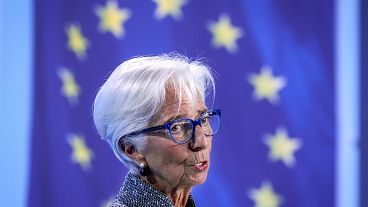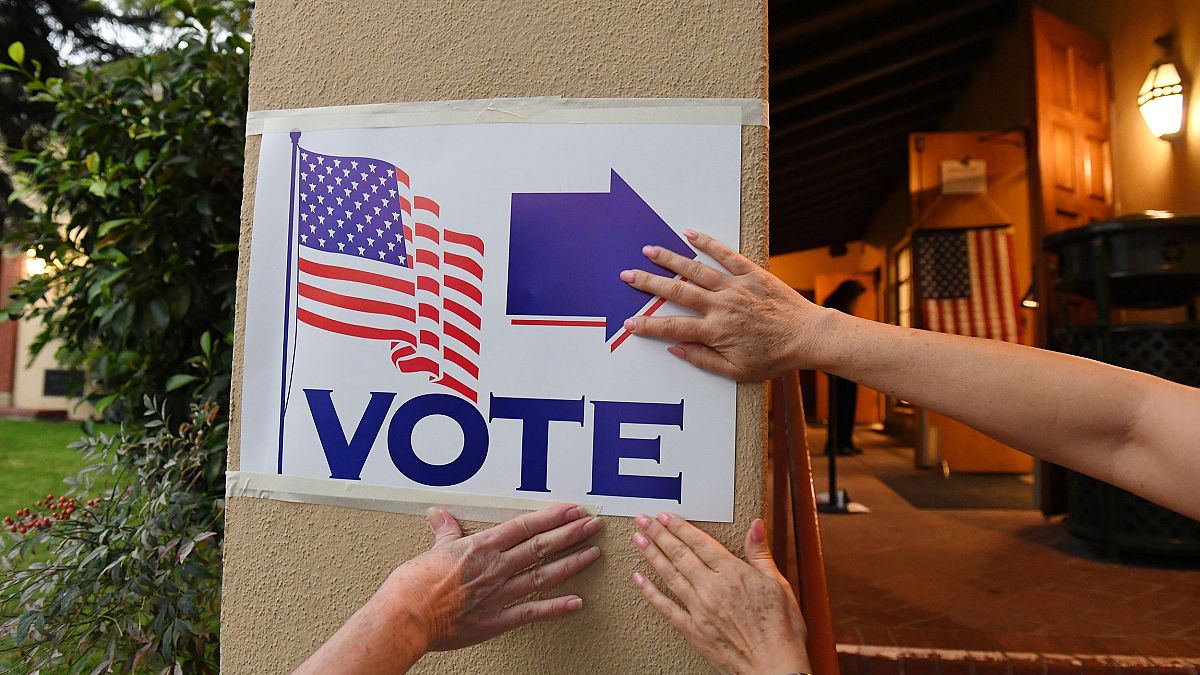Both pro- and anti-Trump attitudes were motivating factors to vote in 2020, with 19 percent supporting the president and 22 against.
Nearly three-quarters of habitual nonvoters plan to cast a ballot in the November election, according to a first-of-its-kind poll on this bloc by the Knight Foundation released Wednesday.
The report, titled "The 100 Million Project: The Untold Story of American Nonvoters," surveyed 12,000 persistent nonvoters nationwide and aimed to understand the characteristics of nonvoters, why they are disengaged from the political process and the effect this group could have on the upcoming election if they turned out at the polls.
The study defined chronic nonvoters as those who are not registered or only voted once in the last six national elections.
More than 100 million eligible American voters do not vote, according to the study, which noted that in the 2016 election, 41.3 percent of qualified voters did not cast a ballot. Hillary Clinton won 3 million more voters than now-President Donald Trump but lost the electoral college.
The study found that a slight majority of nonvoters (53 percent) are women. Forty percent of nonvoters are Millennials (compared to 30 percent of voters). Nonvoters are also predominantly white (65 percent). They're also more likely to be single and make less money than active voters and less likely to have graduated from college.
29 percent of respondents said they weren't registered to vote due to a basic lack of interest in politics and 13 percent said they felt their votes didn't matter. Despite this, 71 percent of habitual non-voters plan to cast a ballot in November, according to the study. Both pro- and anti-Trump attitudes were motivating factors to vote in 2020, with 19 percent supporting the president and 22 against. Thirty-one percent said civic responsibility was a factor for voting in 2020.
These nonvoters also tend not to participate in the political process because they are less likely to actively seek out news and they don't feel they have enough information about candidates and issues to make a decision on Election Day, the study found. Survey respondents also cited feeling "depressed, discouraged or distracted" when consuming news and "intentionally" avoiding the news.
The survey found that if the nonvoters were to vote in 2020, they would be more or less evenly divided, with 33 percent supporting Democrats and 30 percent supporting the GOP. Eighteen percent of those surveyed said they would vote for a third-party candidate. In comparison, 46 percent of consistent voters went from the Democrat versus 37 percent for Trump. The study also found that nonvoters are more liberal on issues such as health care, but skew conservative on abortion and immigration.
The study also zeroed in on nonvoters in 10 key battleground states — Arizona, Florida, Georgia, Michigan, Minnesota, Nevada, New Hampshire, Pennsylvania, Virginia, Wisconsin — that are crucial to securing Electoral College votes.
In all swing states, except Pennsylvania, immigration was the top issue for nonvoters, followed closely by jobs, the economy and health care. In Pennsylvania, jobs and the economy was the top issue then followed by immigration and healthcare, respectively.
Trump is the favorite among nonvoters in Arizona, Florida, Pennsylvania, Virginia and New Hampshire. The Democratic nominee would be favored by nonvoters in Georgia, Michigan and Wisconsin. Trump had a 40 percent approval rating among nonvoters compared with 51 percent who disapproved of his performance.
The study also focused on the emerging electorate — Gen Z voters. They are also the least likely to vote of any age group, are less interested in politics than voters and nonvoters and less likely to view more Americans voting as a good thing, according to the study. For 2020, 38 percent said they don't have enough information to choose a candidate, but 41 percent are more likely to vote for the Democratic nominee versus 19 percent for Trump.
The Knight Foundation surveyed 4,002 national non-voters with an error estimate of plus or minus 1.55 percentage points. Among the 8,015 swing-state non-voters surveyed, the margin of error was plus or minus 3.5 percentage points, and among the 1,002 national active voters surveyed the margin of error was plus or minus 3.1 percentage points. All the completed interviews were among adults aged 25 and above. For the national young adult sample, it consisted of 1,035 respondents nationwide, ages 18 to 25, with a margin of error of plus or minus 3.1 percentage points. For full results and methodology, click here.












